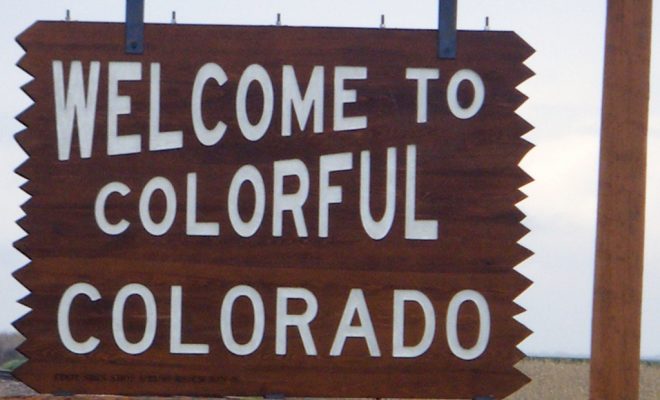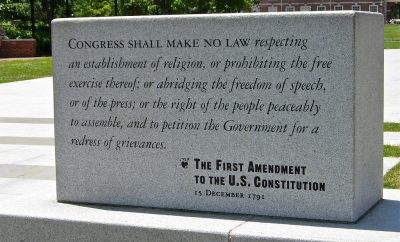 "Welcome to wonderful Colorado" courtesy of Bradley Gordon; License: (CC BY 2.0)
"Welcome to wonderful Colorado" courtesy of Bradley Gordon; License: (CC BY 2.0)
Weird News
Colorado Votes to Keep Slavery in State Constitution (Really)
Colorado voters had the choice on November 8 to decide whether or not to abolish a loophole in the state’s constitution that makes slavery legal as punishment for a crime. Lawmakers from both parties unanimously decided to put the question on the ballot and there seemed to be no opposition to the effort, as no one campaigned against it.
That’s why it was such a shocker when it turned out that a majority appears to have voted against the measure. All of the votes have still not been counted, but by late Thursday there were almost 35,000 more “no” votes than “yes” votes, out of 2.3 million ballots cast.
Many were upset after the election:
Colorado votes NOT to remove language of slavery from state constitution. This is even more concerning than other results today.
— Matthew Bentley (@bentleymaja) November 9, 2016
Colorado voted a minimum wage increase while simultaneously voting to keep slavery in the constitution for criminals. Huh?
— John Livingston (@JohnLivy) November 18, 2016
Colorado, I’m confused. You voted for Clinton, to keep slavery legal, to legalize assisted suicide, & made it harder to propose amendments.
— Suzi Q Smith (@suziqpoet) November 9, 2016
It seems unbelievable that over a million people in a state that recently voted to legalize recreational marijuana would also vote against completely getting rid of slavery. And when it dawned on lawmakers why the results turned out as they did, they probably slapped their heads. The question was worded like this:
Shall there be an amendment to the Colorado constitution concerning the removal of the exception to the prohibition of slavery and involuntary servitude when used as punishment for persons duly convicted of a crime?
Would you know whether to check the “yes” or “no” box?
“I think people were confused by the language,” Democratic Representative Joe Salazar told the New York Times. “I don’t think this was a pushback at all by individuals saying they wanted slavery in the Constitution. I just think the language was too confusing.”
The exception to the prohibition of slavery, which allowed for the practice as a punishment for a crime, was added in 1876, which was after slavery was abolished nationally in 1865. But since it was not widely known that the language exists in the constitution, activists think that people might have misinterpreted it. In addition to the confusing language on the ballot, some believe that voters could also have been thrown off by a voter guide that was sent to every Colorado voter. The guide is required to contain arguments for and against ballot measures and it said that the proposition could lead to legal ambiguity, although experts were not actually concerned.
Lawmakers are determined to try one more time, but next time with simpler language. “We’re going to do it again,” Mr. Salazar said. “We’re going to make sure we finally rid the Constitution of that language.”








Comments